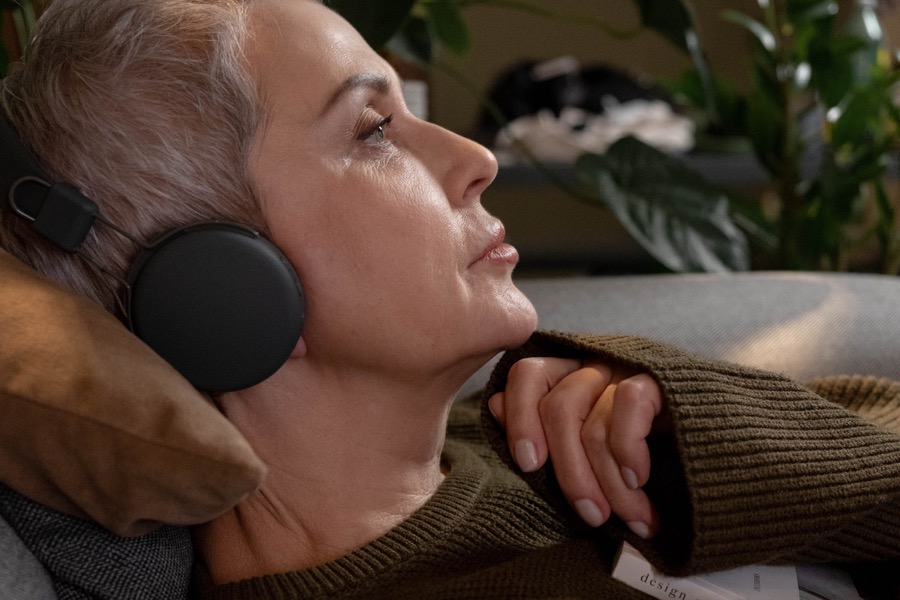Forty-five million Americans experience tinnitus, perceiving sound in one or both ears without an external source. In your online search for information about this annoying problem, you'll encounter many misconceptions and unproven remedies for tinnitus.
Let me offer you some guidance: Don't let the following four misconceptions distort your understanding or delay the effective treatment of your tinnitus.
Misconception 1: Tinnitus is only ringing in the ears.
A ringing sound is only one version of tinnitus. Others include buzzing, hissing, chirping, you name it. And tinnitus varies in loudness, pitch, consistency, and its effect on the quality of life. Your version of tinnitus is unique.

Misconception 2: Tinnitus is something I must learn to live with; there is nothing I can try to help reduce the perception of my tinnitus.
Although there is currently no cure for tinnitus, there are strategies that provide some degree of relief.
Well-established treatments include counseling, improving quality of life, and sound therapy. In all cases, finding what works best requires experimentation. So be patient and explore a variety of approaches. While audiologists are your first visit for tinnitus, other professionals can provide relief too. For instance, let's assume that stress (or anxiety, a stress reaction) increases your tinnitus. In that case, a counselor or therapist can help you find ways to reduce these triggers. The objective is to find activities that distract your brain from tinnitus. —Dr. Elizabeth Abbs

Misconception 3: There are over-the-counter (OTC) supplements that cure tinnitus.
Currently, there are no FDA-approved drugs available for tinnitus. There are OTC supplements that promise relief, but the results of clinical studies are equivocal.
For example, you'll see Ginkgo Biloba supplements claiming to reduce tinnitus. Yes, the same Ginkgo that traditional Chinese medicine has used for centuries for many ailments, ranging from cough, fever, diarrhea, toothaches, and gonorrhea.
Does it work for tinnitus? It's difficult to say because the research is mixed; some studies say it helps, others say it doesn't.

If you're considering trying Ginkgo for tinnitus, keep the following in mind Gingko has potential side effects including allergic skin reactions, constipation, dizziness, headache, heart arrhythmias, and upset stomach.
Physicians advise not taking Ginkgo if you're older or have a condition that causes bleeding, have seizures or epilepsy, have diabetes, or are pregnant. Be aware that herbal supplements can interact with other medicines or nutritional supplements.
Always check with your physician before taking herbal supplements.
Misconception 4: Using sounds to mask my tinnitus completely is an effective long-term tinnitus management strategy.
Masking tinnitus can help provide temporary relief, but it doesn't help the brain learn to ignore the tinnitus. On the other hand, keeping masking sounds at low levels so that your tinnitus remains audible helps the brain learn to ignore the tinnitus.
If your hearing is normal, low-level background sounds can help reduce tinnitus. However, any background sounds used should be slightly softer than the level of your tinnitus. Your tinnitus should still be audible. This protocol helps train your brain to ignore the tinnitus. —Dr. Elizabeth Abbs

Have Tinnitus? Schedule a Visit.
Patients I see often discuss these four, but there's more to the story. If you're in our service area, schedule a visit with us if you would like to discuss how our team of audiologists can help you manage your tinnitus. Let's discover what therapy or combination of therapies gives you relief.
Crest Hill: 630-633-5060 | Palos Hills: 708-599-9500
About Elizabeth Abbs, Au.D.
In her sophomore year at the University of Illinois, Champaign-Urbana, a class in deaf culture persuaded Elizabeth to become an audiologist. Now fascinated by hearing science, she switched her major. In 2021, Elizabeth graduated from Northwestern University with her Au.D., and has been with Sertoma Speech & Hearing Centers ever since. Outside of work, she enjoys exercising, art, going out to eat, and spending time with friends and family.

